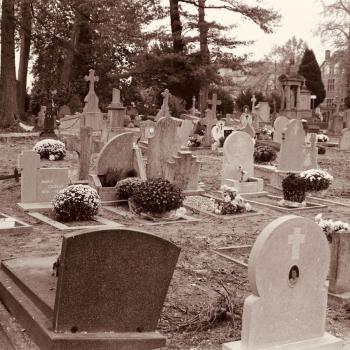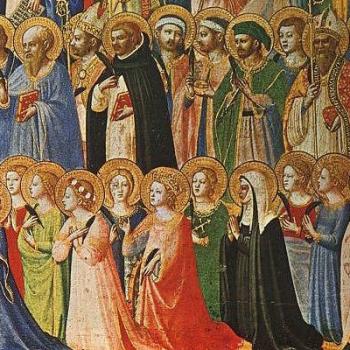James Earl Jones, best known for his deep and powerful voice and an illustrious acting career, was made popular by his role as Darth Vader in “Star Wars” and Mufasa in “The Lion King.” Jones also starred in movies such as “The Great White Hope” and “Field of Dreams.” Apart from his professional accomplishments, Jones was a deeply spiritual individual. This led to his conversion to Catholicism, a decision influenced by his background, personal experiences, and the search for the meaning of life.
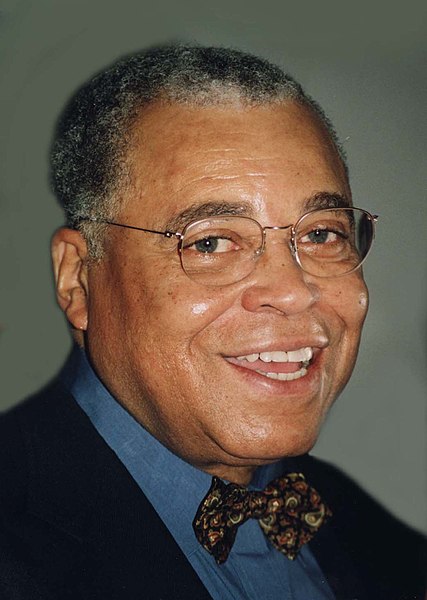
Early Life
James Earl Jones’s conversion was not just a personal transformation, it was a meaningful aspect of his spiritual and artistic journey. He opened up about his faith in his autobiography, “Voices and Silences.” He mentioned that he got interested in Catholicism in high school. “Many of my classmates were Catholics, and I was curious about their religion,” he wrote. He was skilled at masonry and helped to construct a Catholic church in Irons, Michigan. “The priest took an interest in how I felt about Catholicism, and offered to give me some instructions, but I wasn’t ready for that.”

While serving in the U.S. Army in the 1950s, Jones found solace in attending Catholic chapel services. Although he did not witness conflict, Jones served in the military during a period of global turmoil, which forced him to reflect more deeply on life, mortality, and the meaning of human existence. These observations led him to further learn about Catholicism. He described this period as one where his involvement in the Catholic Church provided a refuge from the harsh realities of military life. Eventually, he decided to receive formal instruction in the faith and converted to Catholicism during this time. Jones said Catholic Church and Shakespeare’s literature were some of the few things in his life that were “not geared toward the art of killing.”
Grace of Marriage
Cecilia Hart, his second late wife and a devout Catholic, played an important role in his journey. Jones began to research Catholic teachings during their relationship, attending Mass and debating theology, spirituality, and the existence of God. Jones fell in love with the way Hart lived out her faith, and that piqued his interest even further about the Catholic Church and its traditions and rituals.
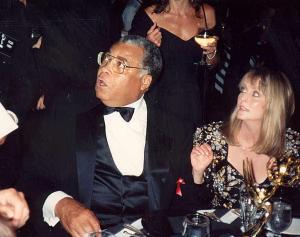
Photo credit – Wikimedia Commons
Jones felt deeply connected to the contemplative and liturgical elements of Catholicism. The Mass really touched him because of its blend of ceremony, solemnity, and a subliminal message of peace and harmony. His developing conception of spirituality and interpersonal relationships was in line with the Catholic Church’s emphasis on mercy, forgiveness, and the sacraments. Jones found that Catholicism provided both a foundation and a sense of community for examining the intricacies of morality and faith.
Greatest Honor & Forgiveness
The Catholic faith also influenced Jones’ decision to narrate the King James version of the New Testament. He called it his “greatest honor”, a tribute to his childhood mentor who led him towards God and helped him deal with the challenge of his stutter.
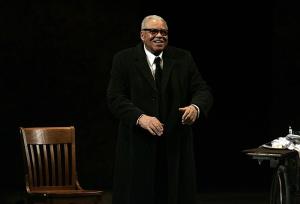
Photo credit – Wikimedia Commons
By turning to Catholicism, Jones discovered a religion that not only linked him to his wife and family, but also encouraged him to reconcile with his father, Robert Earl Jones. After decades of alienation, the two men reunited and grew closer in his father’s last years. This gesture of forgiveness and reconciliation could be interpreted as his understanding of his faith because Catholicism teaches about compassion, forgiveness, and healing. Though Jones was not outspoken about his faith, his Catholic beliefs were the foundational elements in his life that guided him through a prolific career that spanned over 70 years.





